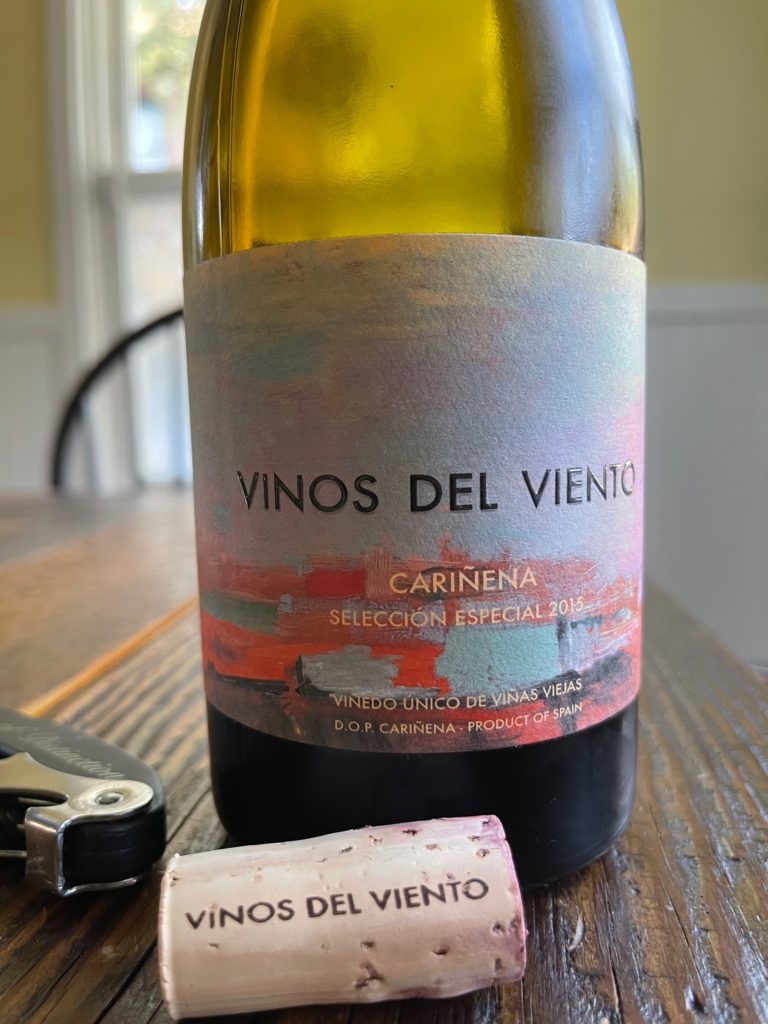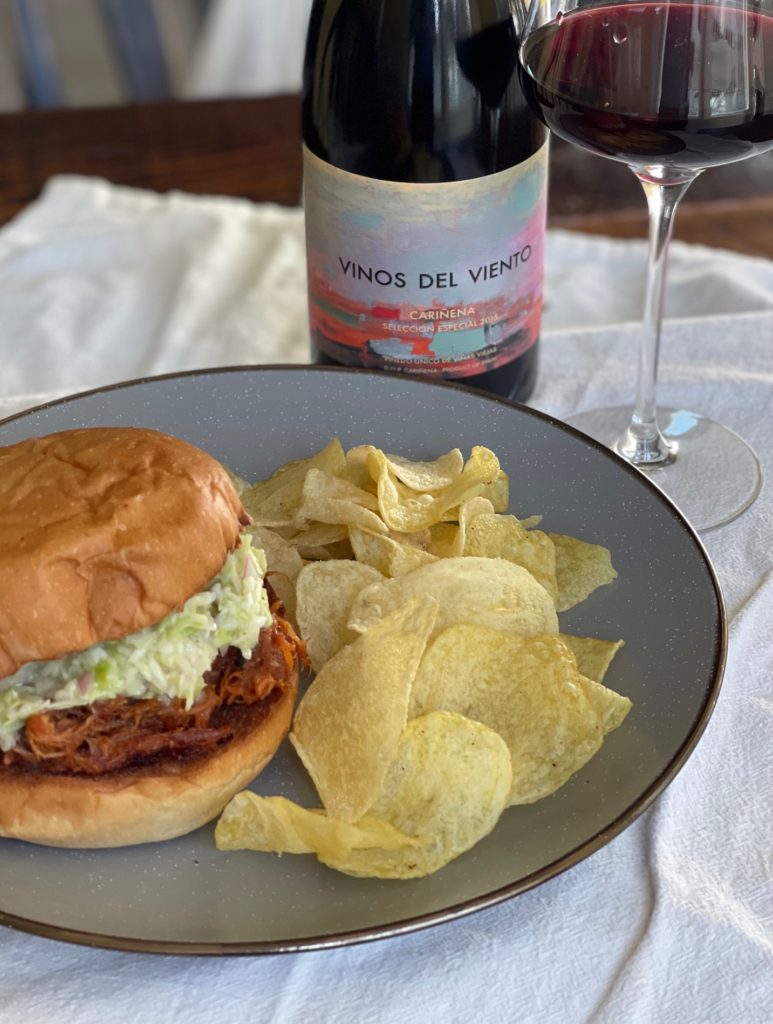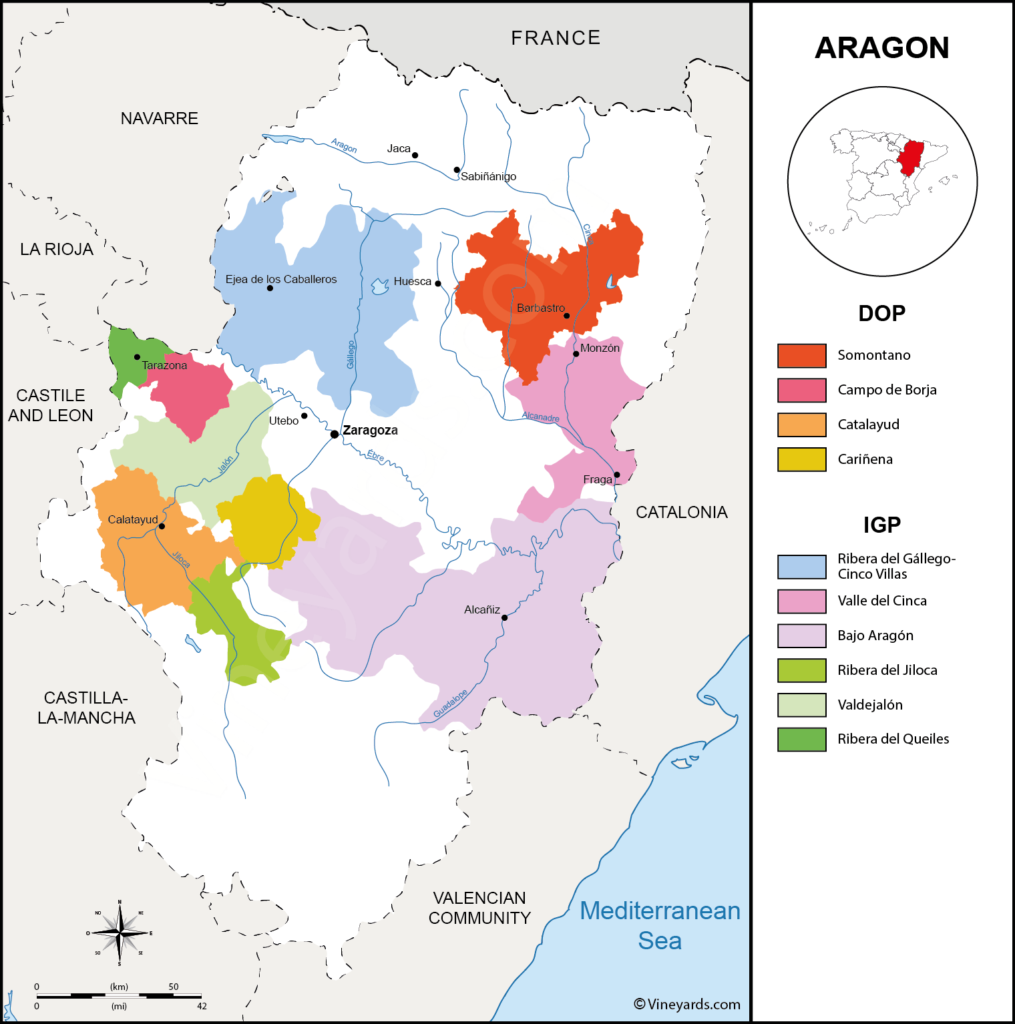This month the intrepid #WorldWineTravel group of bloggers continues its 2021 virtual exploration of Spain with a visit to Aragón.
Our previous virtual visits so far this year included (click on link for my posts):
- January; La Rioja
- February; Catalunya-Penedes-Cava-Priorat-Monstant
- March; Castilla y Leon-Ribera del Duero, Rueda, Toro
- April; Galicia-Rias Baixas
Aragón is northeast Spain. It stretches from the Pyrenees Mountain which forms a border between Spain and France, and is flanked on the left and the right respectively by the renown wine regions of La Rioja and Catalonia.
Viticulture in region dates back centuries, and is (stop me if you’ve heard this before) linked to monastery life.
For my fellow history fans, here something I discovered during my research into Aragón. In the twelfth century, as the Moors we driven south, Aragón became a major empire, even claiming Sardinia, Naples and Sicily under its rule. It became even more powerful when the royal prince Ferdinand of Aragón married Isabella of Castile. And it was that royal court “that funded the voyage of Christopher Columbus to establish colonies in the new world, a quest which highlighted Aragón’s competitive presence on the international stage”. (Source)
Climatically, Aragón is a land of extremes. Overall, it can be termed as moderate continental, with altitude acting as the main determinant. The Pyrenees and other areas of elevated topography in the north are cooler, as are parts of the south. The altitude of the vineyards here can be anywhere from 500 to 1,000 meters (1,640 to 3,280ft). In the middle of the region, the altitude falls to 200 meters (650ft). Such a diverse range of grape-growing conditions creating multiple mesoclimates means that Aragon’s wines are extremely versatile in style explains Wine-Searcher.com
Aragón’s four Denominaciones de Origen (“DO”s) are: Campo de Borja, Cariñena, Calatayud, and Somontano.
Cariñena
My wine if from Cariñena, which is the largest of the four DOs in the Aragón. It was earned DO status in 1932 making it Spain’s second oldest officially designated wine region
The majority of the region’s vineyards are located at relatively high altitudes, between 400 and 800 meters (1,300-2,600ft), and are planted on rocky clay soils. About 50 percent of the vineyards are planted with Garnacha, and it’s quite common to find 30-40 year old vines in Cariñena (some of the oldest are over 100 year old). The region’s proximity to mountains means it receives more rain than other areas of Aragón. Additionally, the area is windy. Both factors moderate the semi-arid continental climate of the region.
The Cariñena DO (a.k.a “DOP”) appellation permits the production of red, rosé, white wines, fortified, sweet, and sparkling wines.
2015 Vinos del Viento Seleccion Especial Cariñena
The wine is a blend of 85% Cariñena (Carignan), 15% Syrah sourced from from a single vineyard at 700 metres above sea level in the municipality of Cariñena, planted on alluvial soil, mixed with brown slate and high iron content clay. The vines are more than 40 years old, dry-farmed, bush vines and are hand-harvested. Fermented on native yeast, and raised in new French oak barrels for 12 months

Tasting Note:
Translucent dark ruby color with black and red fruit, licorice, smoked bacon, vanilla and balsamic aromas. On the palate it’s medium-bodied with very fresh, tangy acidity and velvety well-integrated tannins. It shows ripe blackberry, and Brooks cherry, and raspberry flavors with hints of savory spice with a long finish. 90pts|14.5% abv| SRP – $11 (Note: I purchased this wine for $15.99 from K&L Wine Merchant, but it’s currently on sale for $10.99 an insane price for a wine of this quality IMHO)

The wine was awesome paired with a Pulled Pork sandwich topped with coleslaw and a mix of Torres Black Truffle and Cured Cheese Chips from Spain.
About Vinos Del Viento
Vinos del Viento is a project of winemaker Michael Cooper and his wife. Cooper is a native Californian who has lived in Spain since 2002, and has been making wine there since 2009. The project is focused on indigenous grape varieties (primarily Garnacha (Grenache) and Cariñena (Carignan)) from all four of Aragón’s four DOs. Cooper seeks out high altitude, old-vine and dry farmed vineyards. He pioneered 100% Carignan in Cariñena in 2009 when nobody was considering the potential of the grape in single variety wines. The grapes are sustainably grown, and the project uses locally made lightweight bottles made from recycled materials.
Be sure to have a look at my fellow #WorldWineTravel writers discovered during their virtual visit to Aragón.
- A Tale of Garnacha, Exploring Aragon by Avvinare
- Aragón by Tabletop: Arroz Aragonés + 2015 Vinos del Viento Cariñena by Culinary Adventures with Camilla
- Aragon’s Carinena and Castles + Olive Anchovy Sammies by Wine Predator
- Calatayud, Aragon Wines: Evodia + Fully Loaded Pork Taquitos by Our Good Life
- Campo De Borja: The Empire of Garnacha by My Full Wine Glass
- Cooking to the Wine: Vinos del Viento Cariñena with Smoky Octopus, Bacon Smashed Potatoes, and Romesco Sauce by Somm’s Table
- Exploring Aragon via Plate and Glass by Food Wine Click!
- Exploring the Kingdom of Aragon and Its Wines by Crushed Grape Chronicles
- Fountains of Wine in the Land of Kings by Children of the Grape
- Heading to Aragón and Valdejalón with Bodegas Frontonio by Savor the Harvest
- Learning Spain – Aragon’s Four Wine Regions: Carinena, Somontano, Calatayud, and Campo De Borja Through Eight Wines by Chinese Food and Wine Pairings
- Two Bottles of Lovely Wine from a Lovely Area by A Day in the Life on the Farm
We’ll be chatting about the Wines of Aragon, Spain live on Twitter tomorrow (Sat 5/22) 11 a.m. ET / 8 a.m. PT. Join the conversation via by following and using the #WorldWineTravel hashtag.

I had learned a little about the “Kingdom of Aragon”, but did not realize they had financed Columbus. Fascinating facts!
The wine sounds delicious and so affordable.
I will admit to really being curious about the Torres Black Truffle and Cured Cheese Chips. They sound delicous! I’m going to need to track those down!
You nailed the diversity of the climate in Aragón. In some ways the dry and arid aspects remind me of the central valley of California. I’m intrigued by Cooper and his project. Seems fairly similar to the guys at Frontonio there, finding and nurturing the old vines. On the food, gosh I miss a good pulled pork sandwich! Did you make your own?
On the search for this wine up here, even with the Canadian conversion it would be an absolute steal!
It’s been fun to see what you and Camilla thought of the wine and how you paired it! I can absolutely see pairing this with Pulled Pork as well, and I’m seriously considering heading back to K&L to pick up more of this!
Thanks Nicole at $11, I’ve already ordered more!
What a steal at $11! Love the smoked bacon note and can imagine how good this wine tasted with a pulled pork sandwich. Yum!
Thanks Linda…I’ve already ordered more!
Fun fact: Aragon’s expansion into the Mediterranean is why Garnacha (Cannonau) became established in Sardinia!
Ah! I love it when grape history is intertwined with other history like this Frank! Thanks for the factoid!